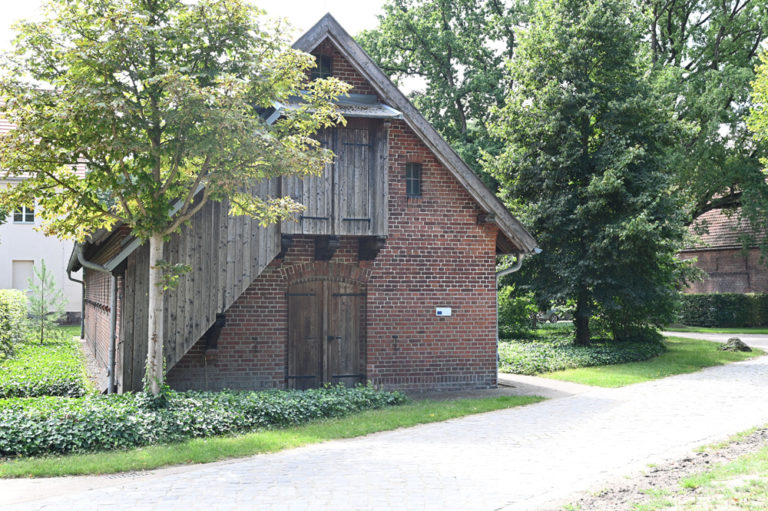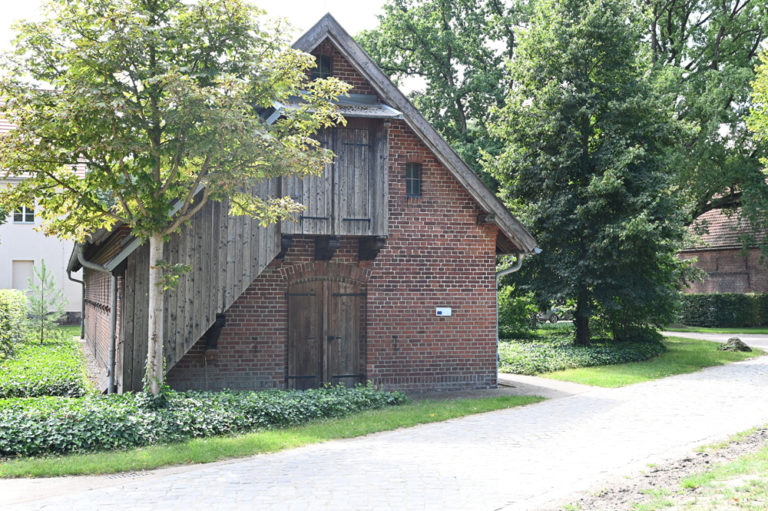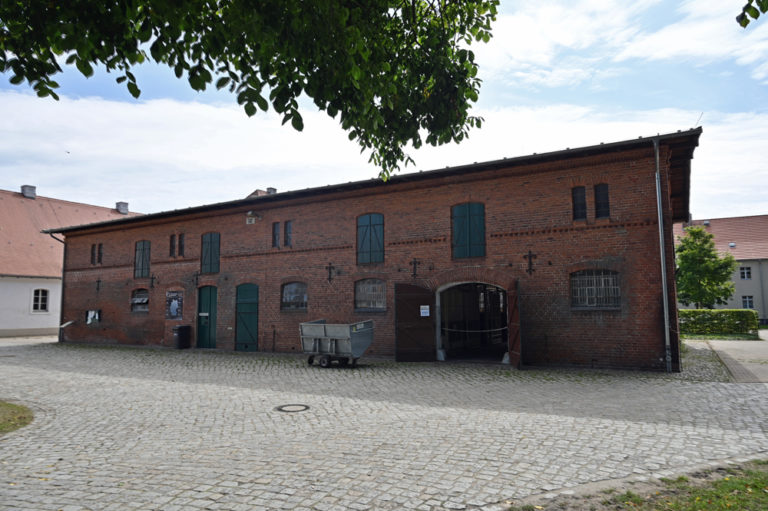Old forge & old saddlery
Built in 1912, the forge and wheelwrighting workshop were used for various smithing work, including for agricultural purposes. But this was predominantly where the stud’s horses were shoed. In the meantime, there are now multiple mobile farriers responsible for shoeing around 300 horses at the stud. The building is instead used as a workshop for the stud’s own maintenance team.
The stud’s saddlery is used to carry out important repair works on saddles, bits, harnesses and other leather goods. Conserving this gradually disappearing art is not just one of the foundation’s missions but also a practical help in everyday working life at the stud. Built in around 1900, the red brick building was previously used as a barn for the stud workers’ pigs.
Inspector's house
In around 1810, the inspector’s house was constructed in the main stud in the typical style for a detached family home for this time period and region. This is where the families employed in agricultural roles were housed, before a financial inspector later took up residence and gave the building its name. Most of the roughly 90 employees at the Brandenburg Main and State Stud still live in or in the direct vicinity of the stud today, which not only gives them a delightfully short commute but also lets them get to the horses very quickly in case of any emergencies.
Ackerstall stable
The horses that were previously used in agricultural work and to pull ploughs or carts were kept in the Ackerstall stable. As the use of horses in farm work became increasingly rare, the building began being used as an insemination station in 1977. This was a rarity at the time, as most mares were naturally impregnated by stallions back then. Things are quite the opposite these days, with artificial insemination the norm. The risk of injury and infection is also reduced, and the possible number of impregnated mares per stallion increased. That’s why the breeder’s mares are kept in the Ackerstall stable in spring, so they can be inseminated. The inseminations are carried out in another part of the building.
Have the entire text read aloud.

Seen and heard everything?

Our matching offers
Guided tours
Discover the stud farms on guided tours and learn a lot of interesting facts about the history, horse breeding and famous horses (German website).
Carriage & Kremser rides
Experience the “Sanssouci of horses” from its most beautiful side. Away from the hustle and bustle and stress of everyday life, we offer you a special view of the Neustadt studs with a carriage or charabanc ride (German website).
Offers for groups and tour operators
Ideal as a stop-over destination and day trip (German website).










